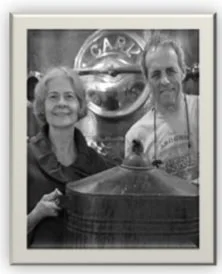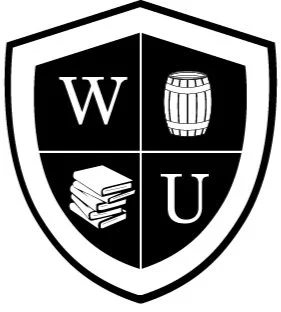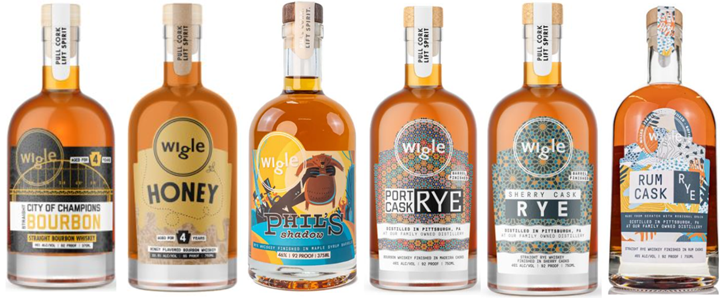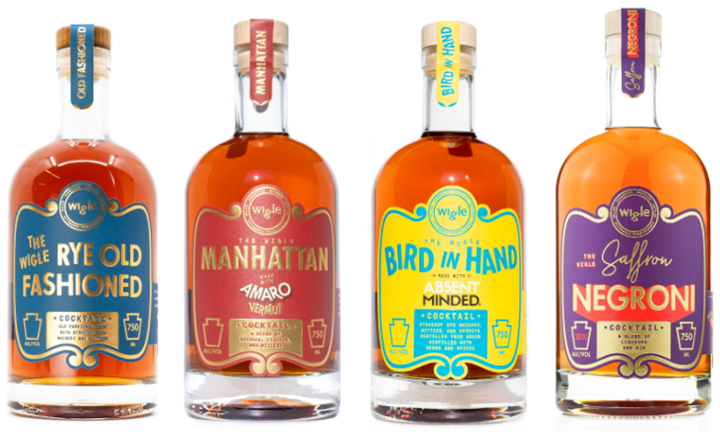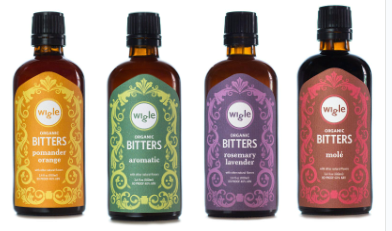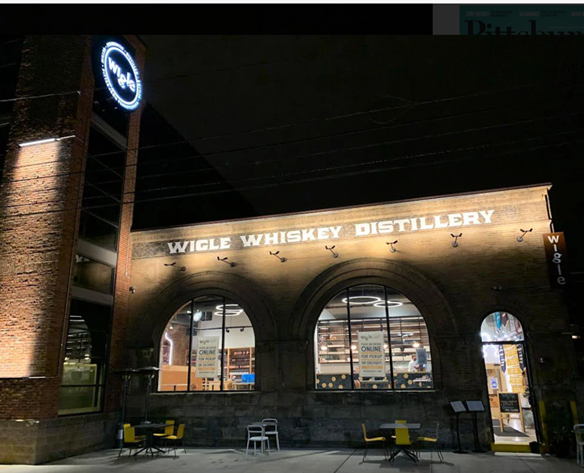Mark & Mary Ellen Meyer
“Pioneers of Wigle Whiskey”
Mark and Mary Ellen Meyer, a dynamic husband-and-wife team, are the co-founders of Wigle Whiskey Distillery, Pittsburgh’s first distillery since the 1920s. Their journey into the world of craft distilling began, not from a background in spirits production but from a shared passion for community, history, and innovation. Mark, a lawyer by profession, brought a strategic and determined mindset to the venture, while Mary Ellen, with her roots in Southwestern Pennsylvania, contributed a deep appreciation for the region’s cultural and historical heritage. Their complementary skills and shared vision laid the foundation for what would become a transformative force in Pennsylvania’s craft distillery landscape.
The couple’s inspiration for Wigle Whiskey sparked during a family vacation to Niagara-on-the-Lake, Canada, where they toured wineries and distilleries with their adult children, Meredith, Eric, Jeff, and son-in-law Alex. The experience ignited a collective enthusiasm, leading the family to explore the idea of opening a distillery. Upon returning home, they dove into the world of distillation, enrolling in intensive courses at Michigan State University’s agriculture school to master the art and science of crafting spirits. This marked the beginning of their transformation from novices to trailblazers in the craft distillery movement.
Founding Wigle Whiskey
In 2011, the Meyers, alongside their family, founded Wigle Whiskey Distillery in Pittsburgh’s Strip District, naming it after Philip Wigle, a key figure in the 1794 Whiskey Rebellion. This historical nod was intentional, as the distillery aimed to revive and celebrate Pittsburgh’s rich whiskey-making heritage, which had been dormant since Prohibition. At the time, only two other distilleries existed in Pennsylvania, making Wigle a pioneer in the state’s craft spirits revival.
One of the Meyers’ most significant accomplishments was their role in reshaping Pennsylvania’s liquor laws. Prior to Wigle’s founding, state regulations required distilleries to sell through state-run liquor stores, a model that stifled small-scale producers. Mark, leveraging his legal expertise, spearheaded a two-year campaign to pass Pennsylvania House Bill 242 in December 2011. This legislation created a new distillery license, allowing craft distilleries to sell directly to consumers. The passage of this bill was a game-changer, enabling Wigle to thrive and paving the way for the growth of craft distilleries across Pennsylvania.
Growth and Innovation
Wigle Whiskey opened its doors in December 2011, transforming a former machine shop into a modern, welcoming space designed to serve as a community hub. Mary Ellen played a crucial role in scouting and renovating the location, ensuring it reflected the distillery’s commitment to openness and engagement. The distillery quickly gained traction, attracting over 100 visitors weekly for tours and tastings within months of opening.
Under the Meyers’ leadership, Wigle became a leader in the “Pennsylvania Rye Revival”, producing a diverse range of small-batch, handcrafted spirits, including rye whiskeys, Pennsylvania bourbons, wheat whiskeys, Dutch-style gins, rums, vodkas, liqueurs, and even innovative products like Eau de Pickle. Their commitment to quality earned them numerous accolades, including medals from the American Craft Spirits Association and semifinalist nominations for the James Beard Award for Outstanding Wine, Beer, or Spirits Professional in 2018 and 2019 for Meredith and Alex Grelli, with the family’s collective efforts underpinning these achievements.
The Meyers’ dedication to sustainability and local agriculture is another hallmark of their work. Wigle sources approximately 500,000 pounds of organic grains annually from farms in Pennsylvania, eastern Ohio, and western New York, making it the largest purchaser of organic grains in the region. This “grain-to-glass” approach not only ensures quality control but also supports small farmers, bolstering the regional economy.
Community Engagement and Legacy
Beyond their contributions to craft distilling, Mark and Mary Ellen have made Wigle a cultural and educational cornerstone in Pittsburgh. The distillery’s tours weave together the history of the Whiskey Rebellion with the art of distillation, offering visitors a chance to connect with Pennsylvania’s past while enjoying modern craft spirits. They’ve partnered with institutions like the Heinz History Center, the Smithsonian’s National Museum of American History, and others to promote whiskey heritage tourism, including efforts to establish a Whiskey Rebellion Trail along the Great Allegheny Passage.
In 2020, Wigle expanded its Strip District facility to include a state-of-the-art production space, a craft cocktail bar, a farm-to-table restaurant, and event spaces, further solidifying its role as a community gathering place. During the COVID-19 pandemic, the Meyers demonstrated their commitment to public welfare by producing hand sanitizer for Pittsburgh’s first responders, addressing critical shortages.
Personal Touch and Future Vision
Mark serves as Wigle’s master distiller, bringing precision and creativity to the craft, while Mary Ellen’s focus on storytelling and community engagement has made the distillery a beloved local institution. Their hands-on approach is evident in every aspect of the business, from hand-labeling over 500,000 bottles to designing signature cocktails for local establishments like Summerset at Frick Park.
As Wigle celebrated its 10th anniversary in 2022, the Meyers reflected on their role in fostering a burgeoning distillery ecosystem in Pennsylvania. Their advocacy for legislative changes has enabled dozens of craft distilleries to flourish, and their innovative spirit continues to push boundaries, as seen in their two-year study on regional terroir in rye whiskey production.
Mark and Mary Ellen Meyer’s journey from a family vacation to founding Wigle Whiskey Distillery is a testament to their vision, resilience, and passion for craft and community. Through legislative advocacy, sustainable practices, and a commitment to quality, they have not only revived Pittsburgh’s whiskey heritage but also set a standard for craft distilling nationwide. Their legacy is one of innovation, education, and connection, ensuring that Wigle Whiskey remains a cornerstone of Pittsburgh’s cultural and culinary landscape for years to come.
Contributed by: Mike Petrarca, Charlestown, West Virginia


